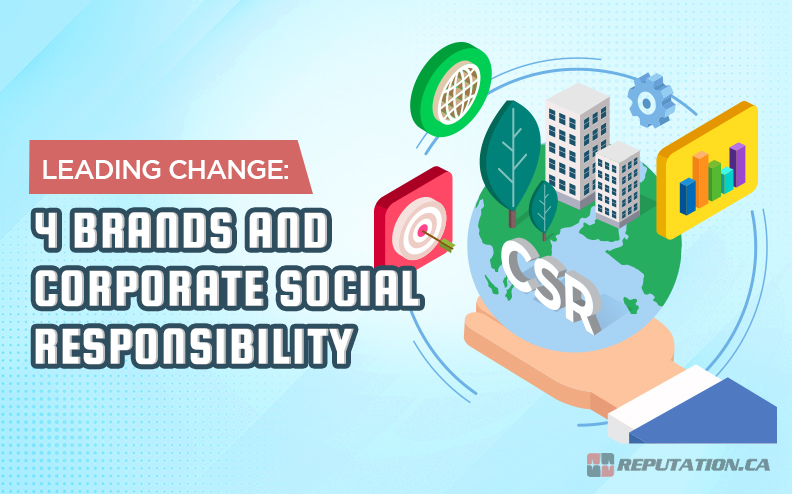Keeping up with the new demand has caused production companies to scale up their production. This leads to an increase in the amount of raw materials used annually and a surge in waste byproducts disposed of in environmentally unconscionable ways. The planet’s current state is not ideal since pollution and contamination are at an all-time high thanks to our individual carbon footprints.
Additionally, there is a major issue with the current socio-political climate in first-world countries (i.e., the United States of America or Canada). Many demographics lack essentials, and mental health concerns are at an all-time high due to stress. This has become a point of contention for several organizations worldwide, with a recent surge in vandalism and protests against current affairs.
Fortunately, some brands have begun recognizing the importance of caring for the environment and launched massive cleanliness efforts and social programs. Some of the world’s leading brands have launched these initiatives in the name of corporate social responsibility.
Corporate social responsibility (CSR) is a form of self-regulation companies employ worldwide to manage their impact on societal issues. Private businesses are given the right to self-regulate in most developed countries, preventing federal or state interference from compelling them to participate. CSR is a practice that companies use to direct their resources towards bettering a specific issue affecting modern society.
CSR involves contributing to philanthropic, activist, or charitable organizations via active participation (i.e., volunteering to assist with a beach cleanup) or financial support (i.e., donations to an organization dedicated to a particular issue). On its surface, CSR is designed to allow companies to improve society by providing resources for people who have almost nothing for themselves. While it does benefit the demographics that need those resources, CSR has a quid pro quo effect for the company and even the CEO.

Contributing to a charitable cause or organization gives the company a way of enhancing its public image by portraying them as altruistic and kind. While there are individuals who genuinely believe in the cause, many companies use CSR to enhance their reputations and make themselves look good to their customers.
This is not inherently a bad thing since the act of donating to a cause or offering assistance for a serious issue does generate appreciation from the public. The only time CSR falls flat is when it is blatantly being used to skirt a more pressing issue, such as redirecting focus from an act of malfeasance by the company. This can cause CSR to backfire since no one will believe it is a genuine act of philanthropy and see it as an attempt to deflect outrage.
While CSR has limits, several companies have employed CSR with great success to enhance their reputation and make a difference. Some of the world’s most famous companies have engaged in acts that fall under CSR, allowing them to overcome certain reputational hurdles. The question you might have now is: which companies have successfully employed CSR to lead the charge for change?
#1: The Coca-Cola Company
The Coca-Cola Company is probably one of the most well-known soft drink producers on the planet, with their eponymous product, Coca-Cola, being the most popular soda in America. While the age-old debate of Coke versus Pepsi persists, most Americans favor the former despite some sordid details in the company’s past. In 1941, World War II caused a trade embargo that prevented the Coca-Cola Company from selling Coke in Germany. As a result, the German headquarters created a drink from local ingredients called Fanta, which became a huge hit.
While the Coca-Cola Company adopted Fanta after the war ended, there was lingering anger with the company for actively trying to sell products to Nazi Germany. Nevertheless, the company remains highly successful and has launched an extremely ambitious CSR initiative oriented toward environmental sustainability.
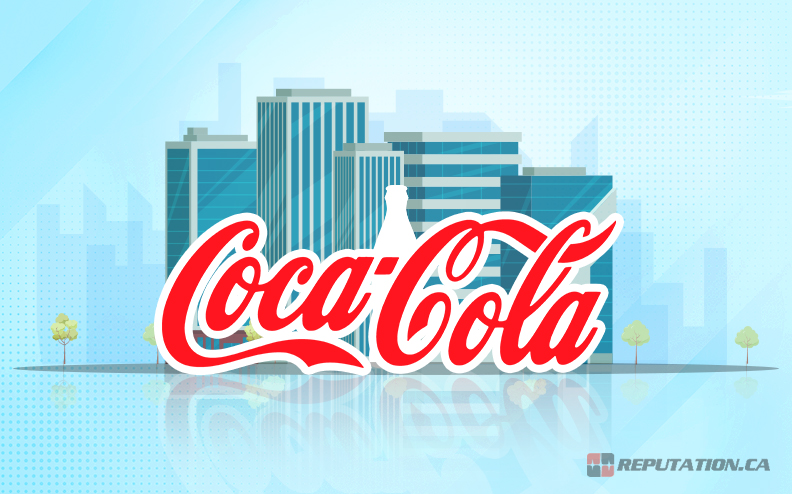
While 2021 was a turbulent time since it was so soon after the rise of the COVID-19 pandemic, people were still drinking Coca-Cola. The sheer number of purchased products drew new concerns about the amount of plastic used to produce bottles (especially since we are notoriously bad at recycling). Fortunately, the Coca-Cola Company launched an initiative to replace their plastic bottles with new ones composed of 100% plant material.
You might have noticed that your Coca-Cola bottles have a different color and texture than you remember. This initiative has reduced the environmental impact of plastic caused by Coca-Cola drinkers since these new bottles are 100% recyclable. According to its green initiative, the Coca-Cola Company aims to reduce its carbon footprint by 25% by 2030.
#2: The LEGO Group
Most children grow up with at least one LEGO set in their lives, though the rising prices of these plastic bricks have made them cost-prohibitive in certain households (not to mention their horrific effect on bare feet). The LEGO Group is a Danish toy company based in Billund, Denmark, and has provided hours of entertainment for children and adults worldwide. Unfortunately, a company specializing in plastic toys en masse, often marketed to children who inevitably lose pieces, is bound to have a few skeletons in its closet.
The amount of plastic the LEGO Group uses annually is astronomical, and it compounds this issue by using plastic bags to package the parts. This has given the company a slight reputation for adding to the growing pollution problem contributing to the rise of climate change. Climate change has been a major concern for years, especially with the recent heatwaves in Europe overwhelming the citizens of France, England, and other European countries.
These claims have caused a small amount of damage to the LEGO Group’s reputation with the general public, but the company has since dedicated itself to a CSR initiative designed to counteract its impact on the planet’s climate.
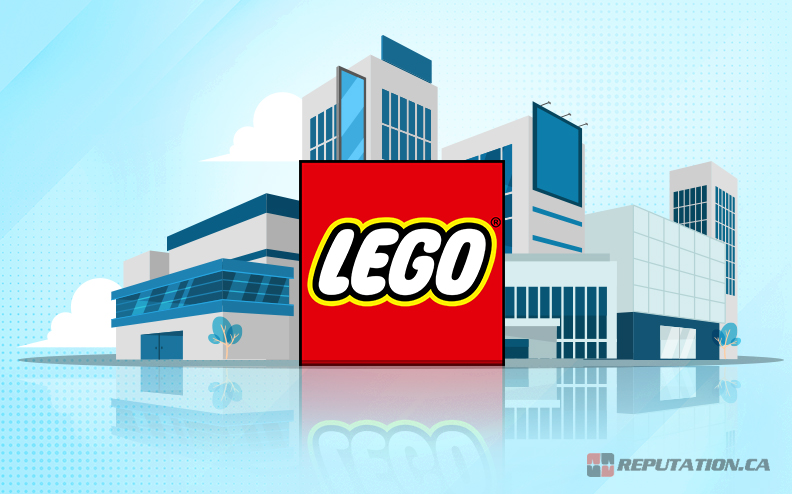
The LEGO Group has created a 3-year plan and invested $400,000,000.00 to enhance its sustainability within the Earth’s environment. Like the Coca-Cola Company, LEGO’s main resolution is to overhaul its packaging and remove the single-use plastic packaging used to store LEGO bricks in cardboard boxes.
The LEGO Group plans to completely phase out these plastic bags by 2025 and replace them with paper bags. In 2021, the LEGO Group began experimenting with paper bags by partnering with the Forest Stewardship Council. Currently, most LEGO boxes in America and Canada continue using plastic bags but should be phased out in the next 2 years if LEGO is true to its word. This puts the LEGO Group in the same camp as the Coca-Cola Company since both companies use CSR to reduce their carbon footprint and provide sustainable product packaging.
#3: Google LLC
Google LLC is one of the most famous companies in the world, primarily because the search engine is the most popular and connected to several other websites. Google has become one of the “Big Five” American technology companies, a distinction it shares with Amazon, Apple, Meta, and Microsoft.
Being one of the leading technology companies in America puts Google under intense scrutiny because they play such a large role in our daily lives. The company was founded in 1998, making it over 20 years old, yet it has become a superpower for information technology and is the first stop for most internet users. Unfortunately, many things can go wrong in 25 years, and Google LLC is no stranger to controversy and has had a few issues.
Primarily, Google has been accused of breaching confidentiality and violating privacy agreements to generate additional advertisement revenue. Selling information has always been part of certain business models, but it often occurs at the expense of the person whose information is sold. The problem is that Google attempted to diminish competition by bribing Apple Inc. to make Google the default search engine for iPhones, resulting in an antitrust lawsuit.
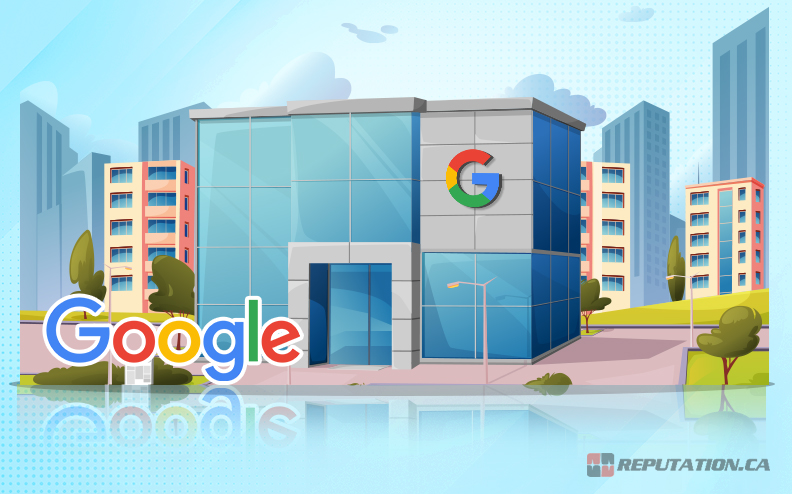
Despite Google’s past mistakes, the company has rededicated itself to helping society while providing the same services it always has. Google has begun taking a stand on social issues such as environmental preservation and addressing racism and energy conservation.
Google was outspoken against ex-president Donald Trump’s Islamophobic comments during his presidency. However, the most impressive contribution Google made to combat social issues is the $1,000,000,000.00 they dedicated to renewable energy solutions to remove our reliance on fossil fuels that contribute to our carbon footprint. Renewable energy has been a major goal of civilizations worldwide, and Google LLC is actively funding potential options that could replace traditional fuels.
#4: Spotify
There are almost no people on the planet who do not enjoy listening to music (though there will always be exceptions). Fortunately, we are spoilt for choice insofar as music applications are concerned, and everyone has their preferred platform. One of the most popular options was created in Stockholm, Sweden, on April 23rd, 2006.
The application in question is Spotify, which has surged in popularity since its creation, with millions of users worldwide and counting. Spotify hosts almost every song available for download and has replaced applications like iTunes as the default choice. While Spotify is extremely popular, it has endured some criticism due to certain practices that are considered shady. Specifically, Spotify was criticized for not fairly compensating the artists whose music is hosted on their platform.
The most recent issue was Spotify’s lack of transparency about compensation for streaming, leading to an entire movement being raised to correct the problem. Despite this initial issue, Spotify has engaged in one of the most important, albeit underappreciated, forms of CSR to date.
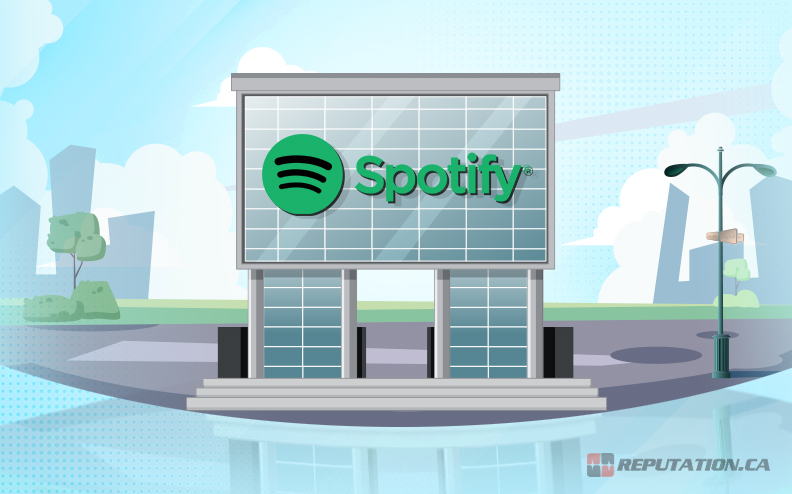
A common issue in the professional world is that employees are treated as replaceable, and companies do not always offer the time off workers need to handle their responsibilities. One of the main issues facing female employees is insufficient maternity leave, with many companies opposing its implementation due to the loss of hours worked by their pregnant employees.
Delivering a child is extremely difficult and causes physical, psychological, and emotional damage to the new mother once the child is born. Spotify is one of the few companies that has actively supported employee rights. For example, Spotify offers maternal and paternal leave to their employees, allowing them 24 weeks of paid time off to tend to their newborns.
The fact that Spotify extends this to the father (or mother that did not give birth) is a major step forward since most companies offer minimal maternity leave and no paternity leave due to the misconception that the other parent is “unaffected” by the birth of an infant.
Take Your Reputation Back!
CSR has become an extremely important aspect of modern reputation management since more people judge corporate behavior. Nowadays, it is expected for major companies and celebrities to have a stance on hot-button socio-political issues. While this helps the general public remain confident in the companies they purchase from, it has created a dangerous precedent.
It is now acceptable to denounce companies for espousing certain socio-political views that are inconsequential to society. Nevertheless, CSR helps consumers see you as a philanthropic organization rather than a company focused only on personal gain. Unfortunately, CSR will not solve all your reputation issues, and you must take additional steps to manage yours.

We at Reputation recognize that managing your public image is extremely difficult and equally important. While engaging in CSR efforts can help revitalize your reputation, you must take care of other details to ensure your image does not deteriorate. For example, maintain a healthy and politically correct social media presence on behalf of your brand to communicate with your consumers and address their concerns directly.
There are other things to consider, but it requires a team dedicated to managing your reputation full-time. If you cannot create an in-house department, we are prepared to assist you with the more hands-on aspects of reputation management. There are no shortcuts to restoring your public image, so visit our website today and take your reputation back!
Do you have any questions about corporate social responsibility or anything else we mentioned in this article? If you do, you’re always more than free to contact us, and we’ll gladly assist you however we can. You can find all of our contact information on this page.




